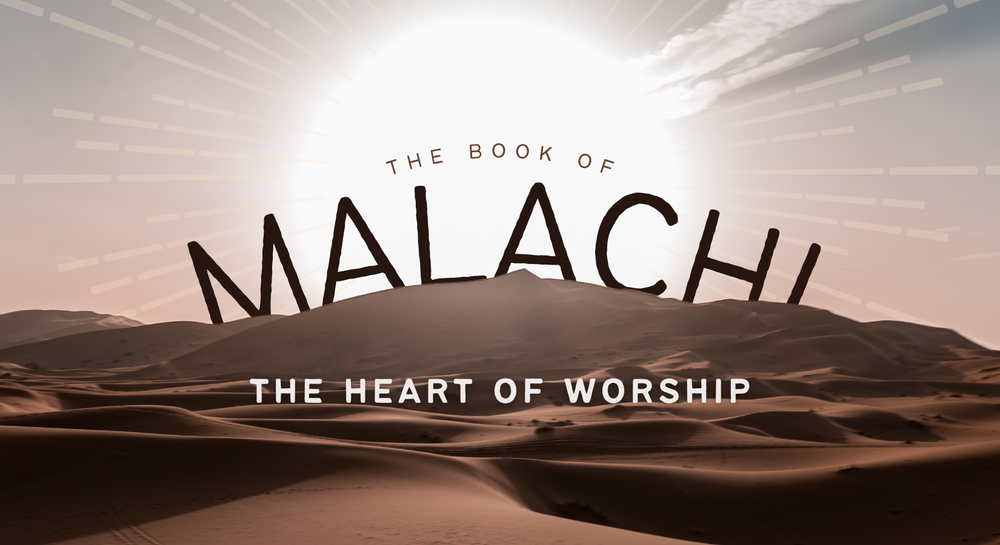In the midst of life’s challenges, it’s easy to question God’s love for us. We may find ourselves wondering, “How has God truly loved me?” This doubt can creep in during times of hardship, disappointment, or when we feel we’ve fallen short of His expectations. However, the book of Malachi offers a powerful reminder of God’s enduring love and the importance of recognizing it as the foundation of our faith.
Malachi, whose name fittingly means “messenger,” brings us into a series of conversations between God and His people. These exchanges reveal a pattern: God makes a claim, the people disagree, and God responds. Right from the start, we see this dynamic at play when God declares, “I have loved you,” only to be met with skepticism: “How have you loved us?”
This question might seem audacious, especially considering the rich history of God’s faithfulness recorded in Scripture. From rescuing His people from exile to demonstrating patience in their wanderings, God’s love has been a constant thread throughout their story. Yet, in moments of struggle or doubt, we too might find ourselves echoing this question.
It’s important to recognize that questioning God’s love isn’t always wrong. The Psalms are filled with honest cries to God, seeking reassurance of His steadfast love. However, the danger lies in allowing this doubt to take root and shape our entire perspective on our relationship with God.
In response to His people’s skepticism, God points to the story of Jacob and Esau. This narrative serves as a powerful illustration of a fundamental truth: God’s love is not based on our merit or performance, but on His sovereign choice. Both Jacob and Esau were flawed individuals, yet God chose to show mercy to Jacob. This choice wasn’t due to Jacob’s superiority but was a demonstration of God’s prerogative to bestow His love as He sees fit.
This concept might challenge our human understanding of fairness, but it reveals a profound aspect of God’s character. As Romans 9:15-16 explains, “I will have mercy on whom I have mercy, and I will have compassion on whom I have compassion. So then it depends not on human will or exertion, but on God, who has mercy.” This truth should bring us comfort, knowing that God’s love for us isn’t contingent on our actions but on His unchanging nature.
Often, we fall into the trap of believing God’s love fluctuates based on our behavior. We might think He loves us more when we’re obedient and less when we fall short. However, this perspective diminishes the power and constancy of God’s love. For those who have put their faith in Christ, we no longer face God’s wrath but experience His full, unending love flowing from His mercy.
This doesn’t mean our actions don’t matter, but it does mean that the overarching story of our lives isn’t one of regret, guilt, or shame. Instead, it’s a story of being chosen and loved by God. Even in our darkest moments, when our faith feels weak and life’s pressures seem overwhelming, God’s love for us remains as bright and steadfast as ever.
Understanding and accepting this truth is crucial for our spiritual journey. Without grasping the reality of God’s unconditional love, we’ll struggle to make sense of Christian teachings and fully experience who God is. It’s the foundation upon which our entire faith is built.
But how can we be sure of this love? The proof lies in God’s actions. Throughout Scripture, we see God’s commitment to protecting and fulfilling His promises of love. In Malachi, God assures His people that any threat to His love for them will be dealt with decisively. This is powerfully demonstrated in the cross of Christ, where what appeared to be the triumph of darkness was actually God’s greatest act of love, achieving the forgiveness of sins and proving the depth of His promise.
For those whose experiences of love in this world have been disappointing or hurtful, this message is particularly poignant. God’s love is different. It never runs out, never hurts, never leaves, and always protects. It remains constant because it depends on His unchanging character, not on our fluctuating worthiness.
As we navigate life’s challenges, it’s crucial to remember that doubting God’s love can lead to a downward spiral in our faith. It can make us bitter, cynical, and negative, distancing us from the source of love and joy. Instead, we’re called to let the warmth of God’s love flood every corner of our hearts, motivating and shaping all we do.
This understanding of God’s love isn’t just a nice theological concept; it’s meant to transform how we live. It should inspire gratitude, fuel our worship, and empower us to love others as we have been loved. When we truly grasp the depth and constancy of God’s love for us, it changes everything.
In a world that often measures love by performance or reciprocation, the message of God’s unconditional love stands out as radical and transformative. It invites us to rest in a love that isn’t earned but freely given, a love that remains steadfast regardless of our failures or successes.
As we reflect on this profound truth, let’s challenge ourselves to live from this place of being deeply loved. Let it be the lens through which we view our circumstances, our relationships, and our purpose. May we find the courage to believe in and accept this love, allowing it to heal our doubts, calm our fears, and propel us forward in our faith journey.
In the end, the story of our lives isn’t defined by our accomplishments or failures, but by the unshakeable love of God. It’s a love that chose us, redeemed us, and continues to pursue us. As we embrace this reality, may we echo the words found in Scripture: “Great is the Lord beyond the border of Israel!” – celebrating a love that knows no bounds and endures forever.
Rev. Joshua Ryu



